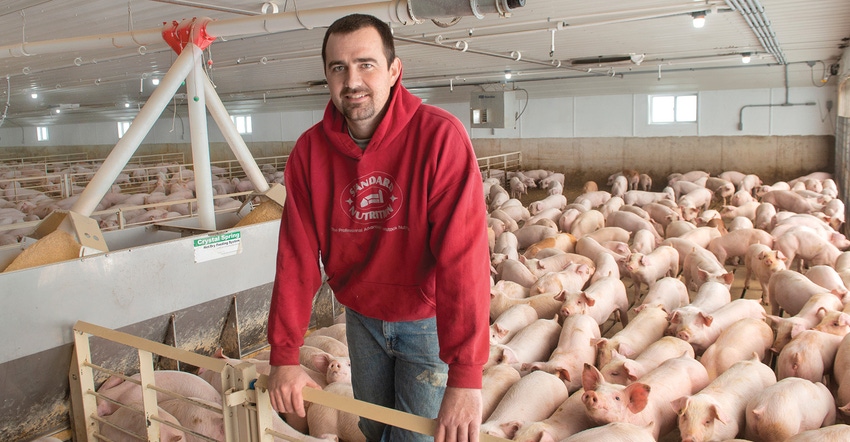These trade deals are important, but as pork producers, we can also take action to build our export relationships and pork demand.
January 22, 2020

This past week in Washington was gratifying for agriculture, and especially for pork producers like me. The big win for the week was getting the final congressional approval for the U.S.-Mexico-Canada Agreement. When combined, Mexico and Canada account for 40% of our export markets. USMCA will now bring some long-needed certainty to our pork export markets.
Additionally, the Phase one trade deal with China that was signed is a good first step. China agreed to include some additional pork in their purchase expansion plans. They also promised to ease some of the phytosanitary barriers they've used in the past to put a hold a U.S. pork coming into their country. But what they didn't do is ease the tariff on U.S. pork.
China's tariff on U.S. pork remains at 68%. That's frustrating when we know their domestic supply has been nearly cut in half as a result of African swine fever, a disease affecting only pigs that has no human health or food safety risks. Their battle with ASF over the past 18 months could be an unprecedented sales opportunity for U.S. pig farmers like you and me. We are both able and willing to fill their supply gap with safe, healthy U.S. pork.
According to Iowa State University Economist Dermot Hayes, U.S. pork producers have lost $8 per hog because of the China-U.S. tariff dispute. That's about $1.5 billion during the past 18 months. China's refusal to remove the tariffs on U.S. pork just doesn't make sense.
We know that China needs the pork. Their government acted to reduce tariffs on other pork-producing countries to a mere 8%. Quickly reducing (and hopefully removing) the tariff on U.S. pork and then making significant purchases of our products will be the real litmus test for how successful continued trade negotiations with China could be.
We are supportive of the administration's work to push bilateral agreements forward. Look at the new trade deal signed with Japan last year that went into effect this month. Japan has been the No. 1 U.S. pork export market in value, and No. 2 in volume. That relationship will continue to strengthen and grow now that we are getting market access that is as favorable as our competitors have.
These trade deals are important, but as pork producers, we can also take action to build our export relationships and pork demand.
The Iowa Pork Producers Association has supported and participated in trade missions to other countries. Through our partnership with the Iowa Economic Development Authority, and with strong support from both Iowa Gov. Kim Reynolds and Iowa Secretary of Agriculture Mike Naig, Iowa pork producers have joined other farmers and Iowa businesses on trips to Japan and South Korea to emphasize our continued ability to provide them with safe, high-quality and affordable pork.
Additionally, during the past 18 months, Iowa pork producers have gone on trade missions to promote pork to potential buyers in Colombia, Panama, Vietnam and The Philippines. As an association, we will continue to support and participate in trade missions to countries that are — or can become — important markets for U.S. pork, too.
By combining promotion of pork with the government's push for favorable trade agreements, we look forward to providing consumers around the globe with the highest quality, most affordable pork in the world.
Trent Thiele is a partner in KMAX Farms LLC, near Elma, Iowa. He manages 19 KMAX finishing barns in a wean-to-finish hog business that markets 60,000 head a year. He is also involved in grain farming and has a 100-cow herd.
Source: Trent Thiele, who is solely responsible for the information provided, and wholly owns the information. Informa Business Media and all its subsidiaries are not responsible for any of the content contained in this information asset.
You May Also Like



